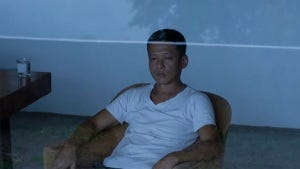Days | What We Did On Our Summer Holidays
Tsai Ming-liang’s latest film Days follows Kang (played by long-time collaborator and muse Lee Kang-sheng), a drifting and presumably grief-stricken man as he deals with muscle pains in his back and neck (supposedly acquired when a shard of porcelain got lodged there during the shooting of 1992’s Rebels of the Neon…
Keep reading with a 7-day free trial
Subscribe to Cinema Year Zero to keep reading this post and get 7 days of free access to the full post archives.





